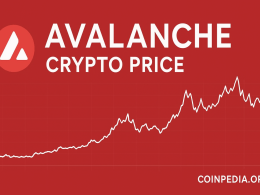The Future of US Banking: Trends and Innovations
The world of banking is rapidly changing, and the US banking industry is no exception. From digital banking to the rise of fintechs, the future of US banking is shaped by a number of trends and innovations. In this article, we’ll explore some of the key developments that are driving the future of banking in the US.
Digital Banking Takes Center Stage
One of the biggest trends in the US banking industry is the move towards digital banking. More and more customers are using mobile apps and online banking services to manage their finances, and banks are responding by investing heavily in digital technology.
This shift towards digital banking is driven by a number of factors. For one, it’s more convenient for customers. With digital banking, customers can access their accounts and manage their finances from anywhere, at any time. It also allows banks to offer more personalized and efficient services, such as automated savings plans and instant loan approvals.
However, the move towards digital banking is not without its challenges. Cybersecurity concerns are a major issue, as banks must ensure that their systems are secure and protected from hackers. There’s also the risk of customers becoming disconnected from their banks, as the human touch is lost in digital interactions.
Fintechs Disrupt the Status Quo
Another trend that is driving the future of US banking is the rise of fintechs. These are companies that are using technology to disrupt traditional banking models and offer new financial products and services.
Fintechs are able to offer customers a more streamlined and personalized experience, often at a lower cost than traditional banks. They are also able to leverage technology to innovate and create new financial products, such as peer-to-peer lending and robo-advisors.
However, fintechs are not without their challenges. They must navigate a complex regulatory landscape and compete with established banks that have deep pockets and a large customer base. They also face the risk of being disrupted themselves, as new fintechs enter the market and compete for customers.
The Importance of Data and Analytics
Data and analytics are becoming increasingly important in the US banking industry. Banks are using data to gain insights into customer behavior and preferences, and to create more personalized and targeted marketing campaigns.
Analytics are also being used to improve risk management and compliance, as banks seek to mitigate risk and comply with regulatory requirements. By leveraging data and analytics, banks can identify potential problems and take action to address them before they become larger issues.
However, data and analytics also raise concerns around privacy and data protection. Banks must ensure that they are transparent with customers about how their data is being used, and that they have appropriate safeguards in place to protect sensitive information.
The Role of AI and Automation
Artificial intelligence (AI) and automation are also playing an increasingly important role in the future of US banking. Banks are using AI and automation to improve operational efficiency and reduce costs, while also providing customers with more personalized services.
AI is being used to automate routine tasks, such as customer service and fraud detection, freeing up human staff to focus on more complex tasks. It’s also being used to analyze data and identify patterns and trends that humans might miss.
However, the use of AI and automation also raises concerns around job displacement and the potential for bias. Banks must ensure that they are using these technologies in a responsible and ethical manner, and that they are taking steps to mitigate any negative impacts on employees and customers.
Conclusion
The future of US banking is being shaped by a number of trends and innovations, from digital banking and fintechs to data and analytics and AI and automation. While these developments offer many benefits, they also raise challenges around cybersecurity, regulation, privacy, and ethics. As the industry continues to evolve












